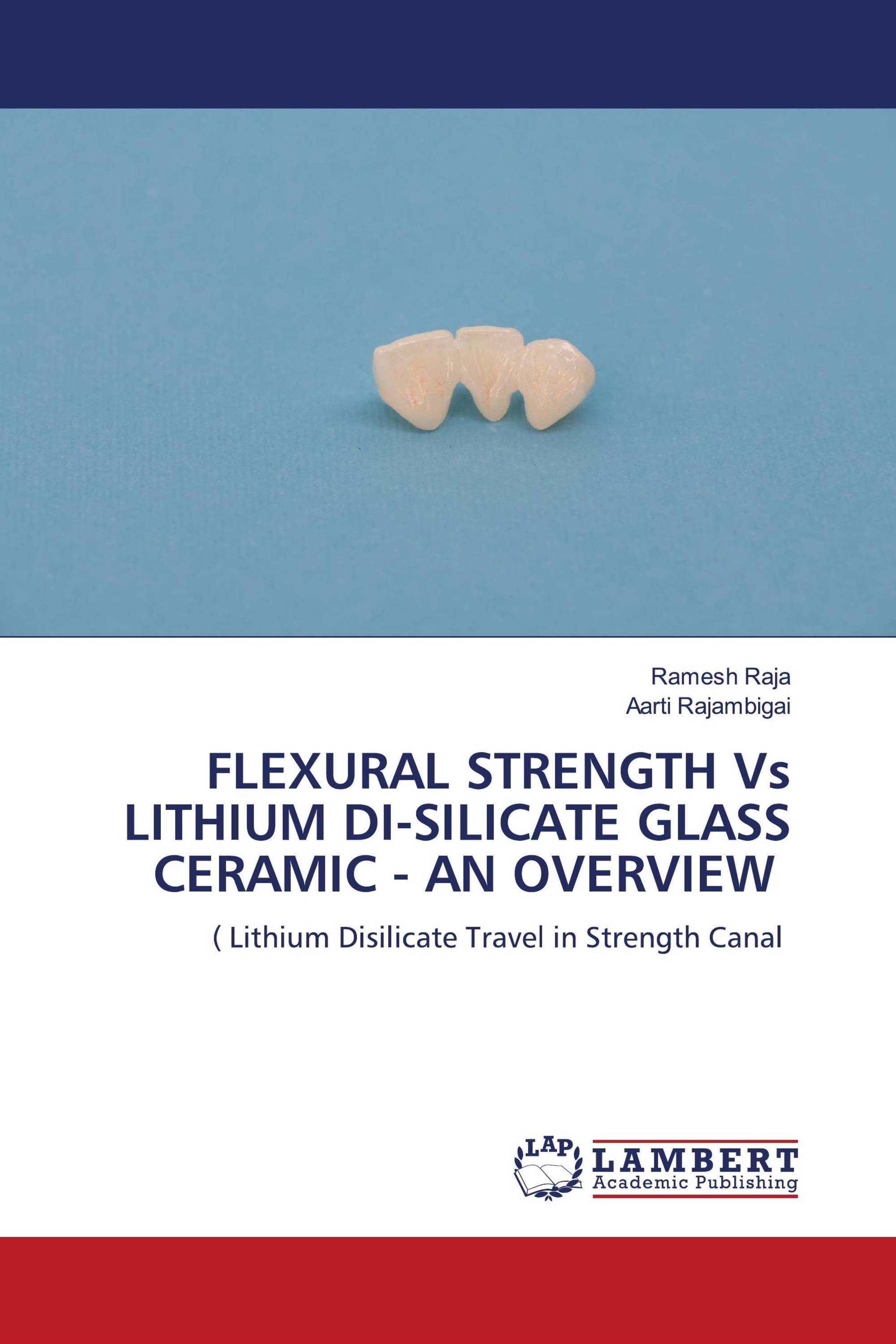FLEXURAL STRENGTH Vs LITHIUM DI-SILICATE GLASS CERAMIC - AN OVERVIEW
Lithium Disilicate Travel in Strength Canal
LAP Lambert Academic Publishing ( 2024-07-02 )
€ 43,90
Selection for lithium disilicate glass-ceramic (LDGC) restorations have increased significantly in the field of prosthetic dentistry. The material possesses remarkable beauty and strength and is composed of an acicular crystalline material (70%) embedded in a glassy matrix. The translucency, esthetics and successful clinical performance have made LDGC one of the most popular all-ceramic materials. With the increased demand for metal-free restorations, LDGC meets the requirement for a material possessing strong mechanical properties combined with the optical properties of natural teeth. Mechanical strength is one of the main factors that determines the clinical success of all-ceramic restorations. In vitro studies report flexural strength of 360-440 MPa and fracture toughness of 2.25-2.75 MPa. These numbers are low when compared to zirconia or even alumina; however, the performance of glass-ceramic should increase after etching, silanization and bonding to prepared dentin using an adhesive resin cement. The mechanical and physical properties of the material allow it to be used in various applications.
Book Details: |
|
|
ISBN-13: |
978-620-7-80970-7 |
|
ISBN-10: |
620780970X |
|
EAN: |
9786207809707 |
|
Book language: |
English |
|
By (author) : |
Ramesh RAJA |
|
Number of pages: |
68 |
|
Published on: |
2024-07-02 |
|
Category: |
Dentistry |




